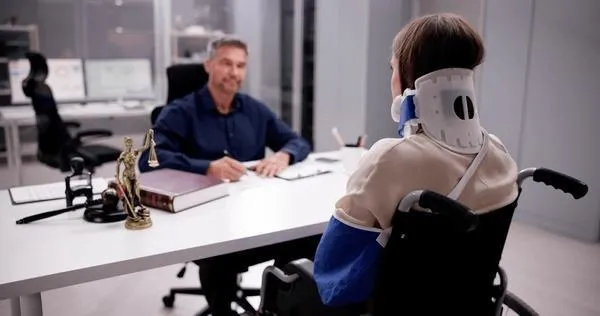Key Steps to Take After an Injury: Building a Strong Legal Case

Getting hurt can turn your life upside down. Whether you slipped and fell, were in a car crash, or were injured at work, it’s important to act quickly. What you do right after the accident can make a big difference.
The steps you take early on can help protect your rights and improve your chances of getting the compensation you deserve. That means collecting the right information, keeping good records, and understanding your entitlements.
It might feel overwhelming, but you don’t have to face it alone. Here’s how to take control after an injury and start building a strong legal case-step by step.
Seek Medical Attention
After an injury, your health should always come first. Even if you don’t feel hurt right away, some injuries may take time to show symptoms.
Seeing a doctor as soon as possible helps make sure you get the care you need. It also gives you a medical record, which is important if you decide to file a personal injury claim.
Getting medical attention quickly does more than just help you heal-it also shows that your injuries were caused by the accident. If you wait too long, the other party may argue that your injuries weren’t related to the accident.
That can seriously hurt your case. Taking the right steps early on can protect both your health and your legal rights.
Document Everything
Documentation is an invaluable part of building your case. After an injury, collect and maintain records of everything related to the event. This includes:
Photographs
Take clear pictures of the accident scene from multiple angles. Include close-ups of your injuries and any damage to property or surroundings. These images can serve as strong visual evidence when building your case.
Witness Statements
Get the names and contact information of anyone who saw what happened. Their statements can help support your version of events. Having a witness can make your claim more credible and harder to dispute.
Police Reports
If a police report was filed, make sure to get a copy. These reports often include details about the incident, such as the time, location, and any parties involved. An official report can strengthen your case with documented facts.
Medical Records
Save all medical records, reports, and bills related to your treatment. These documents show the extent of your injuries and the care you received. They also help prove the financial impact of your recovery.
Time Off Work
Write down the exact days you missed from work because of your injury. Include any lost wages or income during that time. This information can be used to claim compensation for lost earnings.
Notify Insurance Companies
After getting medical treatment and keeping records, the next step is to inform the right insurance companies about your injury. If you were hurt in a car accident, contact your auto insurance provider. If the injury happened on someone else’s property, reach out to their insurance company.
Be careful when talking to insurance representatives. Share the basic facts, but avoid giving recorded statements without a lawyer’s help. Insurance companies may try to reduce what they owe, so having legal support can protect your rights.
Consult a Personal Injury Attorney
A crucial step after an injury is to consult with a personal injury attorney. They can provide insight into your situation and guide you through the legal process. An experienced attorney will analyze the details of your case, advise you on the best course of action, and help you understand your rights.
Having a lawyer can be particularly valuable if your case proceeds to trial. They can effectively represent you in negotiations with insurance companies and in court, ensuring that you are compensated for medical expenses, lost wages, and emotional distress.
For instance, if you sustained injuries in an accident in San Francisco, your attorney would be familiar with the local laws and regulations that may impact your case. This local expertise can make a considerable difference in how the case unfolds.
Understand the Statute of Limitations
Each state has its own rules about how long you have to file a personal injury claim. This time limit is called the statute of limitations. If you miss the deadline, you may lose your chance to get compensation for your injuries.
The time limit usually ranges from one to six years, depending on where you live and what kind of injury you have. Talk to a personal injury lawyer to understand the deadline for your case. Starting early gives you more time to prepare and improves your chances of success.
Review Medical Treatments and Expenses
While you recover, keep a record of all your medical care and related costs. This includes doctor visits, physical therapy, medications, and any other treatments related to your injury. Having a list of these expenses can help you get the full amount you’re owed during a settlement or in court.
Knowing how much your injury has cost you will help you ask for a fair settlement. Insurance companies may offer less than you deserve at first, so having strong records can make a big difference.
Consider Emotional Recovery
Injuries can impact both your body and mental health. If you’re feeling anxious or overwhelmed, seek support through counseling, therapy, or support groups if you feel anxious or overwhelmed.
This not only aids your recovery but can also strengthen your legal case. Mental health records can show the emotional toll of your injury and support a claim for emotional distress.
Be Prepared for Negotiations
As you build your case, prepare for settlement talks with the insurance company. Their first offer may be low, but a lawyer can help you negotiate effectively.
Stay confident and support your claim with strong evidence. If necessary, be ready to go to court to get fair compensation. Remember, settlements are often negotiable, and you have the right to fight for what you deserve.
Taking Action Leads to Success
What you do following an injury can significantly impact your personal injury case. Seeking medical care, documenting details, and working with a skilled attorney helps protect your rights and strengthen your claim. Knowing the law and being ready to negotiate puts you in control.
If you’ve been injured, contact a trusted personal injury attorney. Acting now can lead to better results later.
Is this article helpful? Keep reading our blog for more.





